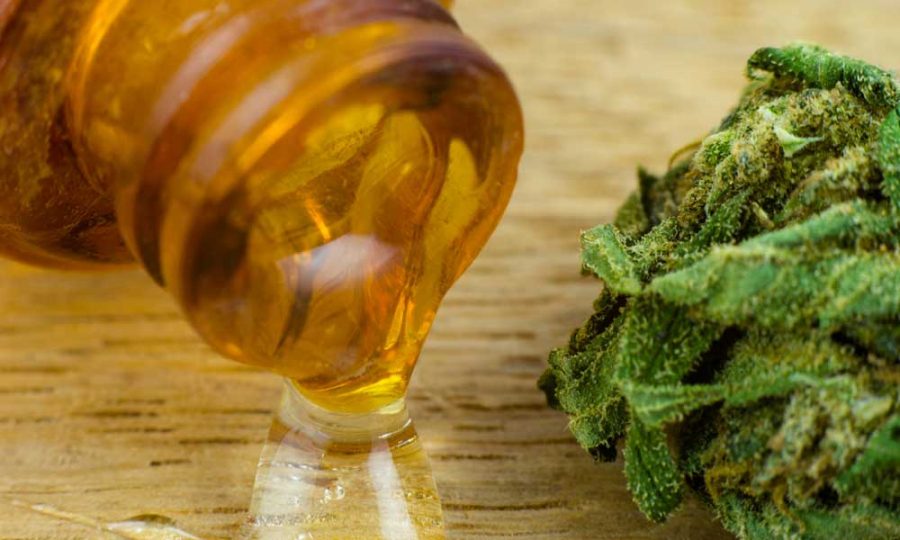Analysts predict the value of the CBD market will reach $22 billion by 2022
The 2018 Farm Bill could propel the CBD industry into new realms of success. If passed, the bill would amend “marihuana” – a term with racist roots – to exclude hemp
The value of the CBD market was previously estimated to top $20 billion by the year 2020, but new predictions from Brightfield Group say it could reach $22 billion.
Cannabis industry analysts at Brightfield have considered the broad market that CBD appeals to when making their predictions.
“What we started tracking this year was an explosion — face mask, bug bites, skin care, topicals,” says the director of research for the Brightfield Group, Bethany Gomez. “It’s being used for everything you can think of — sports, triathlons. People want to buy it for their grandma, for arthritis. Women get it for PMS and endometriosis — common things that people have been using over the counter medications.”
Value of the CBD market will hit $581 million this year
Over the last few years, the cannabis industry has been inundated with news about the cannabis plant’s non-psychoactive constituent cannabidiol.
Better known by its abbreviation, CBD, cannabidiol has been intensely studied for its potential at relieving the symptoms of epilepsy, multiple sclerosis (MS), post-traumatic stress disorder (PTSD) and even cancer-related symptoms.
Unlike tetrahydrocannabinol (THC), it’s cousin cannabinoid is not mind-altering and therefore will not get you high.
CBD movement took off in 2017
It was last year that the CBD movement really started to spread. Prior to the introduction of CBD products in cafes, natural food shops, beauty stores and pharmacies, products containing cannabis’ medicinal compound were limited to head shops and in some cases, doctor’s offices.
Now, the healing cannabinoid is being sold in many forms and the value of the CBD market is estimated to reach $591 million this year, a figure that could swell 40 times over the next four years. Widespread acceptance of CBD is thanks in large part to medical cannabis research, patient clinical trials, and evolving opinions from both the general public and politicians.
Take Senate Majority Leader Mitch McConnell for example. The pro-pot politician is pushing hard to remove the hemp plant from the federal list of control substances. Back in March, he introduced a bill to legalize hemp as an “agricultural commodity.”
The CBD market exists in a legal grey area
While these predictions from Brightfield are promising, Gomez has drawn attention to the fact that federal restrictions have put limits on the burgeoning CBD industry.
The cannabis plant is federally classified as a Schedule I narcotic and despite the fact that it’s THC content is quite different to that of the hemp plant, the hemp plant is still tightly regulated by the U.S. government. Consequently, CBD continues to exist in a legal grey area.
Progress is being made, however. British company GW Pharmaceuticals just gained FDA approval for a cannabinoid-based epilepsy treatment called Epidiolex. It is the first cannabis-derived drug to gain such approval and it could potentially pave the way for other drug companies operating in the weed industry.
“This industry has grown out of nowhere, based on word of mouth marketing,” says Gomez. “There’s no real mass market retailers that are covering it.”
2018 Farm Bill could help the CBD industry to thrive
Gomez has described the CBD market as the “craziest market” she has ever covered. Based on the opinions of her and her team, the 2018 Farm Bill could propel the CBD industry into new realms of success. If passed, the 2018 Farm Bill would amend “marihuana,” a term with racist roots, to exclude hemp.
The term “marihuana” exists in the 1972 Controlled Substances Act. In the event that it is amended, farmers countrywide would be presented with agricultural opportunities for the cultivation of CBD-rich plants.
Brightfield projects an increase in all sectors of the CBD market if the term “marihuana” is amended. According to Gomez, national chains and big-box retailers would experience the most noticeable areas of growth.
“A few years ago, the sentiment was that all hemp drugs were snake oil, they were just trying to capitalize on trends,” explains Gomez. “There’s a lot more serious companies that are involved with it, and we’re seeing products that are coming out with higher and higher dosage levels. So for a lot of conditions like anxiety or chronic pain, it’s debatable whether or not a very sophisticated pharmaceutical product would be more effective than some of these products that are essentially OTC.”
The non-psychoactive cannabinoid CBD is grasping the attention of people from all walks of life who want to medicate with cannabis, without getting high. With that being said, there is serious potential for the CBD market to continue expanding and pulling in the all-important cash.
“It’s everything people believe to be good about marijuana,” affirms Gomez. “Without the downside of getting stoned.”








